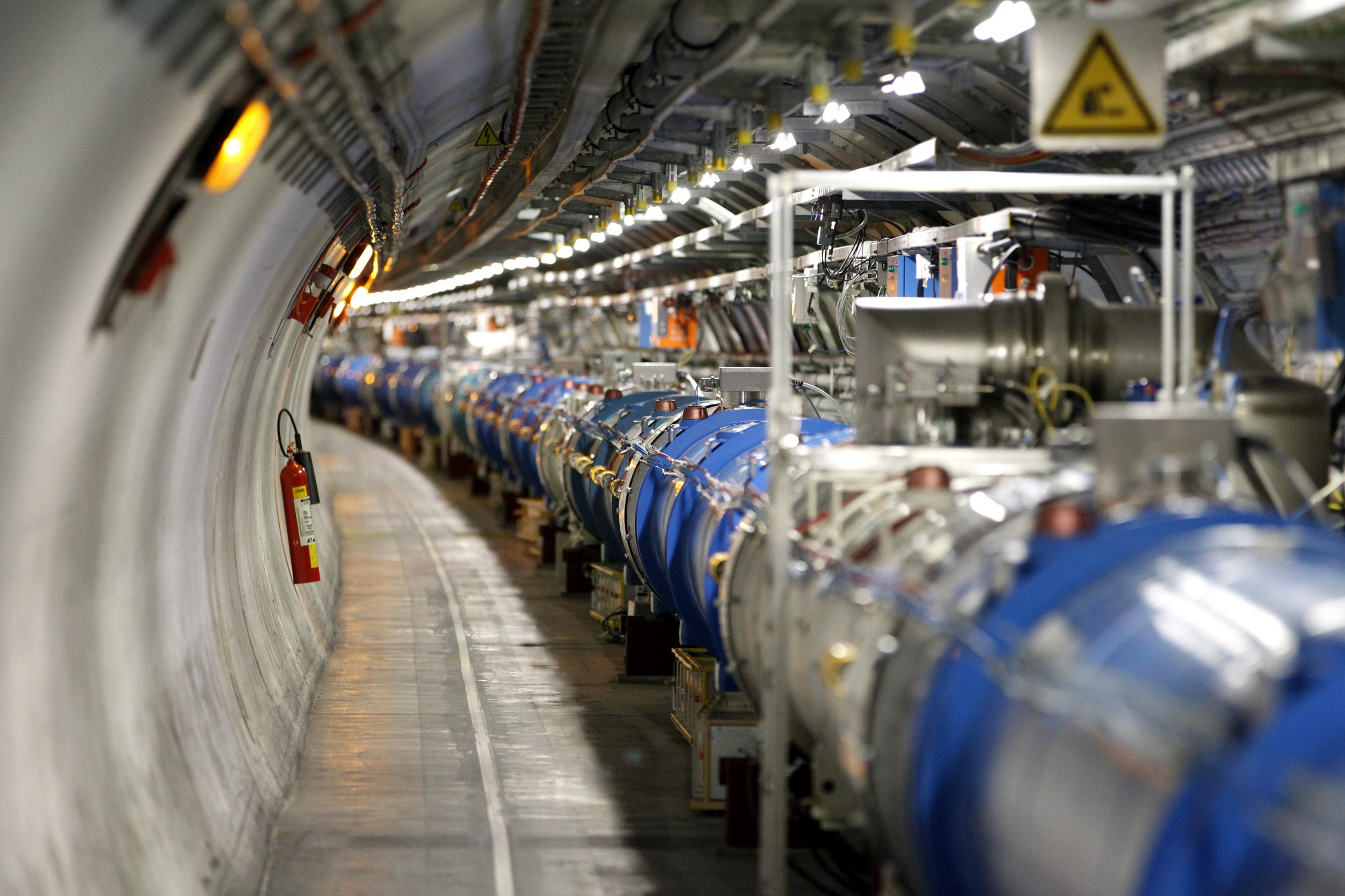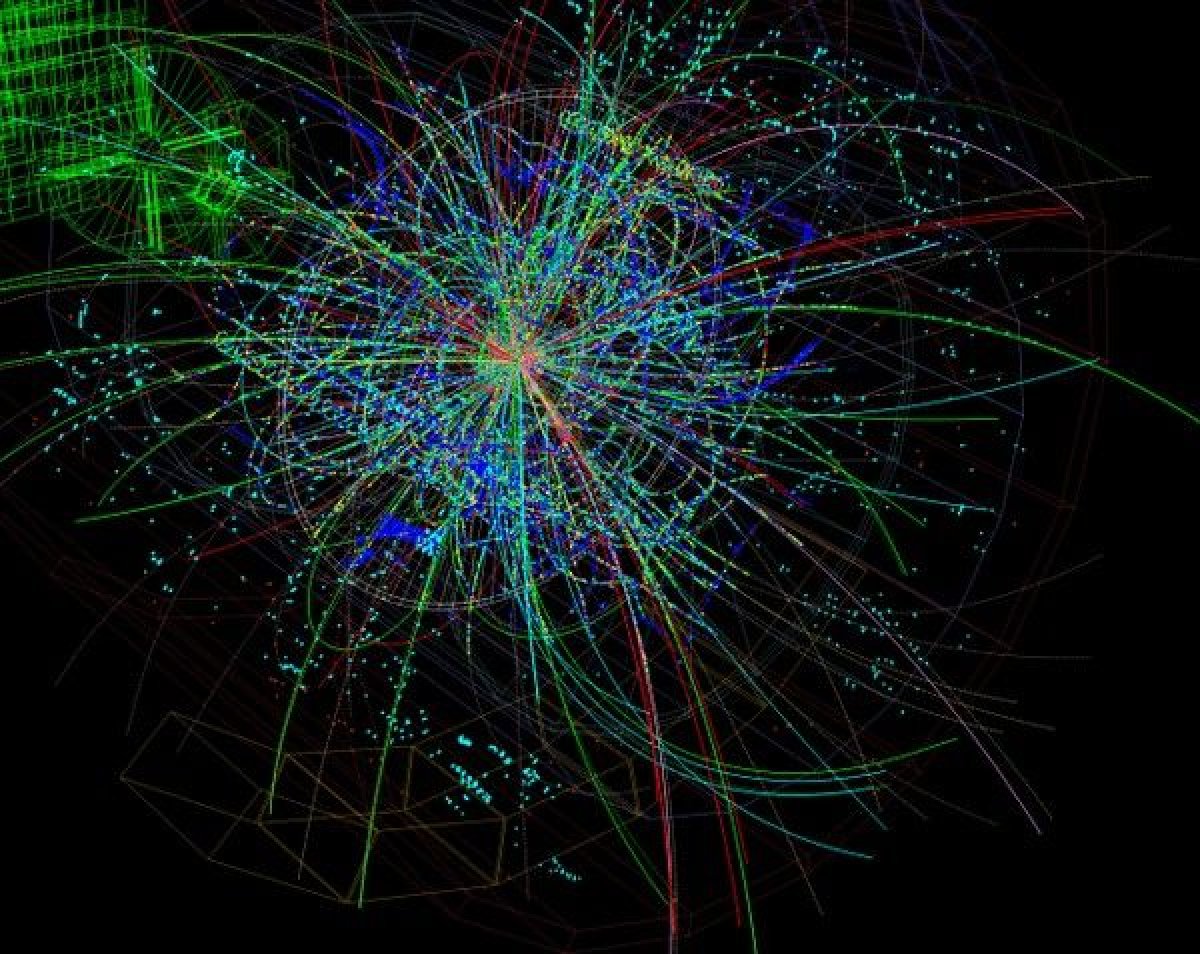
By observing collisions at the Large Hadron Collider, scientists at the European Organization for Nuclear Research (CERN)—one of the world's largest scientific research organizations—are learning more about the "primordial soup" that existed just after the Big Bang . In experiments, scientists have now shown proton collisions can produce a large number of strange particles—the first time this has been observed in collisions with anything other than heavy nuclei.
A few billionths of a second after the Big Bang—currently the most widely accepted theory of how the universe was formed—elementary particles, including protons and neutrons, did not exist. Instead, their buildings blocks—quarks and gluons—were in a sort of hot, primordial soup where they could roam freely. This soup is known as a quark-gluon plasma.
Studying quark-gluon plasma lets scientists investigate the properties of strong interaction—one of the four known fundamental forces of nature, the others being weak interaction, gravity and electromagnetism. But to create this plasma, scientists need extremely high temperatures and energy densities. These conditions, which can be created in the Large Hadron Collider, allow the quarks and gluons to become free. But only in certain collisions are "strange quarks" produced—the collision of heavy nuclei.
Strange hadrons are well-known particles and include the likes of Xi, Omega and Kaon. When quark-gluon plasma is produced, there is an enhanced production of strange particles. Scientists in the ALICE collaboration at CERN —which detects and studies quark-gluon plasma—have now shown that this phenomenon, whereby a large number of strange particles containing quarks is produced, can result from the collision of protons—which are far lighter. Their findings were published in Nature Physics on Monday.
Producing strange quarks with protons is easier than using heavy nuclei—meaning scientists can more readily carry out tests on the plasma that existed at the start of the universe. "We are very excited about this discovery," Federico Antinori, spokesperson for ALICE, said in a statement. "We are again learning a lot about this primordial state of matter. Being able to isolate the quark-gluon-plasma-like phenomena in a smaller and simpler system, such as the collision between two protons, opens up an entirely new dimension for the study of the properties of the fundamental state that our universe emerged from."

As well as providing a new avenue for research, scientists also found the production rate of strange particles increased at a faster rate than other particles generated in the same collision. Increased strangeness production is thought to result from the formation of quark-gluon plasma, so studying this will help scientists understand the microscopic mechanisms.
Researchers also say the findings challenge current theoretical models that do not predict an increase in strange particle production from proton collisions: "This may point towards a common underlying physics mechanism which gradually compensates the strangeness suppression in fragmentation," the team wrote. "Further studies extending to higher multiplicity in small systems are essential, as they would demonstrate whether strangeness production saturates at the thermal equilibrium…or continues to increase."
Uncommon Knowledge
Newsweek is committed to challenging conventional wisdom and finding connections in the search for common ground.
Newsweek is committed to challenging conventional wisdom and finding connections in the search for common ground.
About the writer
Hannah Osborne is Nesweek's Science Editor, based in London, UK. Hannah joined Newsweek in 2017 from IBTimes UK. She is ... Read more
To read how Newsweek uses AI as a newsroom tool, Click here.








